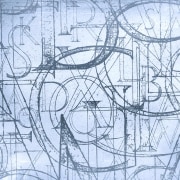|
Getting your Trinity Audio player ready...
|
International agencies have joined forces to tackle grand corruption across borders. Earlier in July the International Anti-Corruption Coordination Centre (IACCC) opened its doors, with the aim of clamping down on a crime category that can include bribery of public officials, embezzlement, abuse of power and money laundering of illegal proceeds.
The IACCC will be based, until 2021, at the UK’s National Crime Agency (NCA). It brings together specialist law enforcement officers from multiple jurisdictions into a single location to tackle allegations of grand corruption. IACCC members include agencies from Australia, Canada, New Zealand, Singapore, the UK and the US. Interpol and the US Department of Homeland Security, Immigration and Customs Enforcement, and Homeland Security Investigations are due to join later this year.
The IACCC is the first international partnership specifically focused on tackling allegations of grand corruption, says the NCA. The centre was established following a commitment undertaken at last year’s UK anti-corruption summit.
“Corruption creates a fertile ground for organised criminal activities and terrorism. It undermines political, social and economic stability, ultimately threatening the safety and security of society as a whole,” said Tim Morris, Interpol’s executive director of police services, at the launch. “A united effort is essential if we are to combat this global scourge with criminals stealing billions from the public purse.”
As money laundering depends on movement of illicit funds across borders, it makes sense that efforts to tackle it match this scope of activity. There is already significant co-operation between the countries in tackling trans-national serious crime, however to date no mechanism has prioritised or coordinated specific action against grand corruption. The IACCC will improve fast-time intelligence sharing, assist countries that have suffered grand corruption and help bring corrupt elites to justice.
“There is no doubt that the world’s major economies are abused by corrupt leaders,” said Donald Toon, NCA’s director of economic crime. “We have a responsibility to guard against that abuse, limit the damage it causes to countries already battling poverty, and pursue individuals who put self-interest above the welfare of citizens.”







